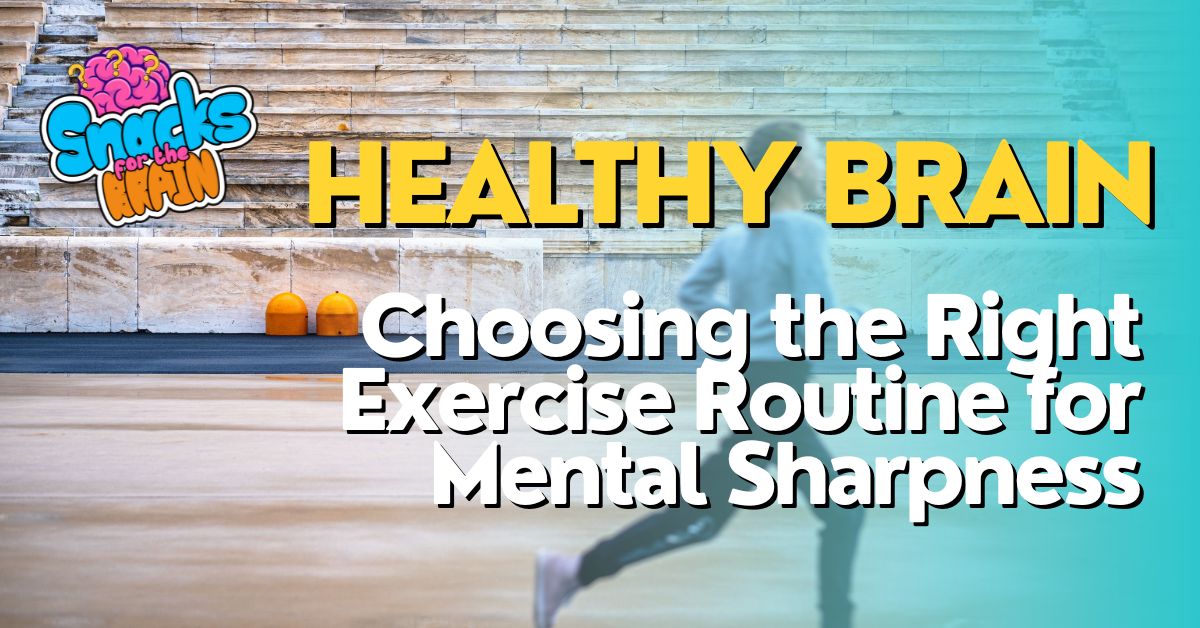Sleep is a fundamental aspect of our lives that is often overlooked or undervalued. However, research has shown that sleep plays a crucial role in brain health and cognitive function. In fact, getting enough quality sleep is essential for optimal brain function, memory consolidation, decision-making, problem-solving, emotional regulation, and overall mental well-being. In this blog post, we will explore the various ways in which sleep impacts our brain health and cognitive abilities. We will delve into the restorative functions of sleep, the effects of sleep deprivation on cognitive performance, the link between sleep quality and memory consolidation, sleep’s influence on decision-making and problem-solving abilities, the effects of chronic sleep deprivation on mental health, the connection between sleep and creativity, sleep’s impact on attention span and concentration, the role of sleep in regulating emotions and mood, the impact of sleep disorders on cognitive function, and strategies for improving sleep habits to enhance brain health and cognitive function.
Key Takeaways
- Sleep is crucial for brain restoration and repair.
- Sleep deprivation can negatively impact cognitive performance.
- Quality sleep is linked to memory consolidation.
- Sleep influences decision-making and problem-solving abilities.
- Chronic sleep deprivation can have negative effects on mental health.
The role of sleep in brain restoration and repair
Sleep is not just a time when our bodies rest; it is also a time when our brains undergo restoration and repair. During sleep, the brain clears out toxins that have accumulated throughout the day. This process, known as the glymphatic system, helps remove waste products that can impair brain function if left unchecked. Additionally, sleep allows for the consolidation of newly acquired information and memories. It is during sleep that the brain strengthens connections between neurons, allowing for better retention and recall of information.
Different stages of sleep play different roles in brain restoration and repair. Rapid Eye Movement (REM) sleep is particularly important for memory consolidation and emotional processing. It is during REM sleep that we experience vivid dreams and our brains are highly active. Non-REM (NREM) sleep, on the other hand, is characterized by slower brain waves and is crucial for physical restoration and growth. Both stages of sleep are necessary for optimal brain health and cognitive function.
Sleep deprivation and its impact on cognitive performance
Sleep deprivation, whether it is acute or chronic, can have a significant negative impact on cognitive performance. Lack of sleep impairs attention, concentration, and reaction time. It can also lead to memory lapses and difficulty in learning new information. Studies have shown that even a single night of sleep deprivation can impair cognitive abilities to a similar extent as being legally intoxicated.
Sleep deprivation can also affect higher-order cognitive functions such as decision-making and problem-solving. When we are sleep-deprived, our ability to make sound decisions and solve complex problems is compromised. This is because sleep deprivation impairs the prefrontal cortex, the part of the brain responsible for executive functions such as planning, reasoning, and impulse control.
The link between sleep quality and memory consolidation
Sleep plays a crucial role in memory consolidation, the process by which memories are strengthened and stored in the brain. During sleep, the brain replays and rehearses newly acquired information, helping to solidify it in long-term memory. This process is particularly important for declarative memories, which are memories of facts and events.
The quality of sleep also plays a role in memory consolidation. Research has shown that deep, slow-wave sleep is essential for consolidating memories. This stage of sleep is characterized by slow brain waves and is thought to be responsible for transferring memories from the hippocampus, where they are initially stored, to the neocortex, where they are more permanently stored.
On the other hand, disrupted or fragmented sleep can impair memory consolidation. When we experience poor sleep quality, our ability to consolidate memories is compromised. This can lead to difficulties in remembering information and recalling details.
Sleep’s influence on decision-making and problem-solving abilities
Getting enough quality sleep is crucial for optimal decision-making and problem-solving abilities. Sleep plays a role in various cognitive processes that are essential for these functions, such as attention, concentration, and reasoning.
When we are well-rested, our attention span and concentration are improved, allowing us to focus on the task at hand and make more informed decisions. Sleep deprivation, on the other hand, impairs attention and concentration, making it difficult to stay focused and make rational decisions.
Sleep also enhances our ability to think creatively and come up with innovative solutions to problems. During sleep, the brain consolidates information and makes connections between seemingly unrelated concepts. This process, known as insight, can lead to «aha» moments and breakthroughs in problem-solving. However, when we are sleep-deprived, our ability to think creatively is compromised, making it harder to come up with novel solutions.
The effects of chronic sleep deprivation on mental health

Chronic sleep deprivation can have a significant negative impact on mental health. Lack of sleep has been linked to an increased risk of developing mental health disorders such as depression and anxiety. In fact, studies have shown that people with insomnia are more likely to develop these disorders compared to those who get enough sleep.
Sleep deprivation can also exacerbate existing mental health conditions. It can worsen symptoms of depression and anxiety, making it harder for individuals to cope with their emotions. Additionally, lack of sleep can impair emotional regulation, leading to heightened emotional reactivity and mood swings.
Furthermore, chronic sleep deprivation has been associated with an increased risk of developing bipolar disorder and schizophrenia. These conditions are characterized by disruptions in sleep patterns, suggesting a bidirectional relationship between sleep and mental health.
The connection between sleep and creativity
Sleep has long been associated with creativity. Many artists, writers, and musicians have reported experiencing creative insights or inspiration during or after sleep. This phenomenon can be attributed to the brain’s ability to make connections between seemingly unrelated concepts during sleep.
During sleep, the brain consolidates information and makes new associations between memories and ideas. This process can lead to the emergence of novel and creative solutions to problems. Research has shown that sleep can enhance creative thinking and improve performance on creative tasks.
On the other hand, sleep deprivation can impair creativity. When we are sleep-deprived, our ability to think creatively is compromised, making it harder to come up with innovative ideas or solutions. Lack of sleep also impairs cognitive flexibility, which is the ability to switch between different ways of thinking. This can hinder creative thinking and problem-solving abilities.
Sleep’s impact on attention span and concentration
Getting enough quality sleep is essential for maintaining attention span and concentration. When we are well-rested, our ability to focus on a task and sustain attention is improved. This allows us to be more productive and efficient in our work or daily activities.
On the other hand, sleep deprivation impairs attention and concentration. When we are sleep-deprived, our ability to stay focused on a task is compromised, leading to decreased productivity and increased errors. Lack of sleep also affects our ability to filter out distractions, making it harder to concentrate on important information.
Research has shown that even mild sleep deprivation can have a significant negative impact on attention span and concentration. In fact, studies have found that individuals who get less than seven hours of sleep per night are more likely to experience attentional lapses and have difficulty sustaining attention.
The role of sleep in regulating emotions and mood
Sleep plays a crucial role in regulating emotions and mood. When we are well-rested, our emotional regulation is improved, allowing us to better cope with stressors and regulate our emotions in a healthy way. Sleep helps regulate the amygdala, the part of the brain responsible for processing emotions, and the prefrontal cortex, which is involved in emotional regulation.
On the other hand, sleep deprivation can lead to heightened emotional reactivity and mood swings. When we are sleep-deprived, our ability to regulate our emotions is compromised, making us more prone to negative emotions such as irritability, anger, and sadness. Lack of sleep can also increase the risk of developing mood disorders such as depression and anxiety.
Furthermore, disrupted sleep patterns, such as those seen in individuals with insomnia or sleep apnea, can contribute to mood disturbances. These individuals may experience difficulties in falling asleep or staying asleep, leading to chronic sleep deprivation and negative effects on emotional well-being.
The impact of sleep disorders on cognitive function
Sleep disorders can have a significant impact on cognitive function. Different sleep disorders affect different aspects of cognitive abilities.
Insomnia, which is characterized by difficulties in falling asleep or staying asleep, can impair attention, concentration, and memory. Individuals with insomnia often experience daytime fatigue and have difficulty focusing on tasks.
Sleep apnea, a disorder characterized by pauses in breathing during sleep, can lead to fragmented sleep and oxygen deprivation. This can impair memory consolidation and cognitive function. Individuals with sleep apnea often experience excessive daytime sleepiness and have difficulty staying awake during the day.
Narcolepsy, a neurological disorder characterized by excessive daytime sleepiness and sudden episodes of falling asleep, can also impair cognitive function. Individuals with narcolepsy may experience difficulties in attention, concentration, and memory.
Strategies for improving sleep habits to enhance brain health and cognitive function
There are several strategies that can be implemented to improve sleep habits and enhance brain health and cognitive function:
1. Establish a consistent sleep schedule: Go to bed and wake up at the same time every day, even on weekends. This helps regulate your body’s internal clock and promotes better sleep quality.
2. Create a relaxing bedtime routine: Engage in activities that promote relaxation before bed, such as reading a book, taking a warm bath, or practicing relaxation techniques like deep breathing or meditation.
3. Create a sleep-friendly environment: Make sure your bedroom is dark, quiet, and at a comfortable temperature. Use blackout curtains, earplugs, or a white noise machine if necessary.
4. Limit exposure to electronic devices before bed: The blue light emitted by electronic devices can interfere with the production of melatonin, a hormone that regulates sleep. Avoid using electronic devices at least an hour before bed.
5. Avoid caffeine and alcohol: Caffeine is a stimulant that can interfere with sleep, so it’s best to avoid consuming it in the afternoon or evening. Alcohol may help you fall asleep initially but can disrupt sleep later in the night.
6. Exercise regularly: Regular physical activity can promote better sleep quality. However, it’s best to avoid exercising too close to bedtime, as it can increase alertness and make it harder to fall asleep.
7. Manage stress: Stress can interfere with sleep quality. Practice stress management techniques such as mindfulness, yoga, or journaling to help relax your mind before bed.
8. Avoid napping late in the day: If you need to take a nap, try to do so earlier in the day and limit it to 20-30 minutes to avoid interfering with nighttime sleep.
Sleep is not just a luxury; it is a necessity for optimal brain health and cognitive function. Getting enough quality sleep is essential for brain restoration and repair, memory consolidation, decision-making, problem-solving, emotional regulation, and overall mental well-being. Sleep deprivation can have a significant negative impact on cognitive performance and mental health. On the other hand, prioritizing good sleep habits can enhance brain health and cognitive function. By implementing strategies to improve sleep quality and quantity, we can ensure that our brains are functioning at their best and that we are able to perform at our optimal level in all areas of life. So let’s prioritize our sleep habits and make sleep a priority for better brain health and cognitive function.
If you’re interested in improving your cognitive function and memory, you may also find this article on «13 Tips and Tricks to Memorize Faster and Remember What You Learned» helpful. It provides practical strategies to enhance your learning and retention abilities. Check it out here. Additionally, if you prefer reading in Portuguese, you can visit the Portuguese version of the website. For more insightful articles on brain health and cognitive function, don’t forget to explore their blog.
FAQs
What is the importance of sleep for brain health?
Sleep is essential for brain health as it helps in consolidating memories, repairing and rejuvenating brain cells, and regulating mood and emotions. Lack of sleep can lead to cognitive decline, memory problems, and mood disorders.
How does sleep affect cognitive function?
Sleep plays a crucial role in cognitive function as it helps in consolidating memories, improving attention, concentration, and problem-solving skills. Lack of sleep can lead to impaired cognitive function, decreased productivity, and poor decision-making abilities.
What are the consequences of sleep deprivation on brain health?
Sleep deprivation can have severe consequences on brain health, including cognitive decline, memory problems, mood disorders, and increased risk of neurological disorders such as Alzheimer’s disease and Parkinson’s disease.
How much sleep do adults need for optimal brain health?
Adults need 7-9 hours of sleep per night for optimal brain health. However, the amount of sleep required may vary from person to person, and some individuals may need more or less sleep depending on their age, lifestyle, and health conditions.
What are some tips for improving sleep quality?
Some tips for improving sleep quality include maintaining a regular sleep schedule, avoiding caffeine and alcohol before bedtime, creating a relaxing sleep environment, and engaging in relaxation techniques such as meditation or deep breathing exercises.






